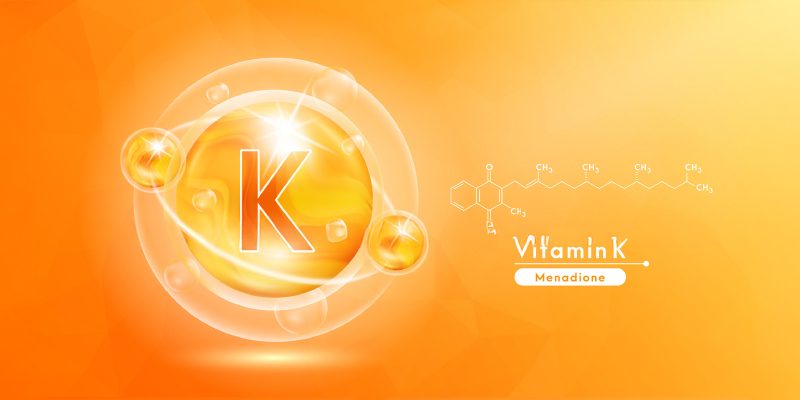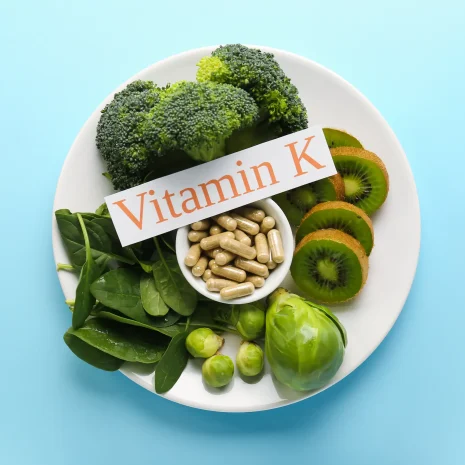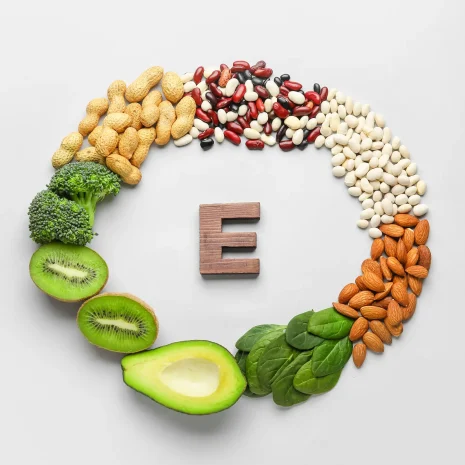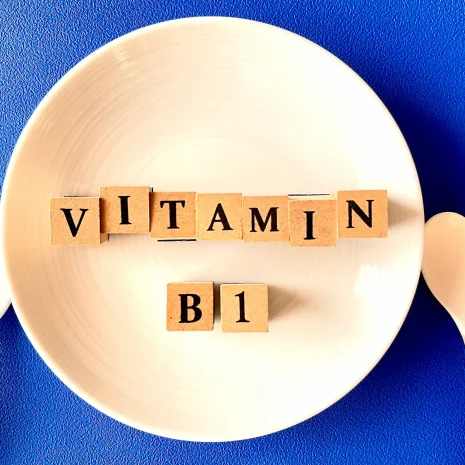What is vitamin K?
Vitamin K is an essential fat-soluble nutrient crucial for overall health. It plays an integral role in numerous physiological processes, most notably in blood coagulation and bone health. Though present in small amounts in the body, a deficiency in vitamin K can lead to serious health issues.
Ongoing research continues to uncover the various functions of vitamin K, indicating its importance in maintaining overall bodily function.
What Does Vitamin K Do?
Vitamin K serves several vital functions, including:
- Blood Clotting: One of its most well-known roles is facilitating the blood clotting process. Vitamin K is necessary for synthesising several proteins involved in blood coagulation, thus preventing excessive bleeding following injuries.
- Bone Health: Vitamin K contributes to maintaining bone density by enhancing the activity of specific proteins that regulate calcium within the bones, helping to combat age-related issues such as osteoporosis.
- Heart Health: Some studies suggest that vitamin K may improve blood vessel health and reduce the risk of heart disease. Its role in regulating calcium transport in the bloodstream is crucial for maintaining cardiovascular health.
- Immune System Support: Recent research indicates that vitamin K may assist in regulating various enzymes in the body, potentially supporting a healthy immune response.
Although many health benefits are associated with vitamin K, individual responses can vary, making it essential to maintain a balanced approach.
How many types of vitamin K are there?
Vitamin K exists in several forms, principally:
- Vitamin K1 (Phylloquinone): Predominantly found in leafy green vegetables, vitamin K1 plays a crucial role in blood coagulation.
- Vitamin K2 (Menaquinone): Found in animal products and fermented foods, vitamin K2 is important for bone health and helps ensure that calcium is properly deposited in bones.
- Vitamin K3 (Menadione): This is a synthetic form of vitamin K that is typically used in veterinary medicine and is not recommended for human consumption.
The different forms of vitamin K serve various functions within the body, with K1 and K2 working alongside one another. It is important to obtain a balance of these forms through a well-rounded diet.
Which foods contain vitamin K?
A variety of foods can provide adequate vitamin K, making it relatively simple to include this nutrient in your diet. Foods rich in vitamin K include:
- Leafy Green Vegetables: Spinach, Swiss chard and kale are excellent sources of vitamin K1.
- Plant Oils: Soybean oil and olive oil contribute to dietary vitamin K intake.
- Fermented Foods: Vitamin K2 is found in fermented foods such as natto and certain cheeses.
- Animal Products: Meat, dairy products and egg yolks also provide vitamin K2.
Maintaining a balanced diet that incorporates these foods can help ensure adequate vitamin K levels.
What are the symptoms of a vitamin K deficiency?
When vitamin K levels are insufficient, it can lead to several health issues, including:
- Problems with Blood Clotting: Symptoms include excessive bleeding, easy bruising, and prolonged bleeding following injuries due to impaired coagulation.
- Bone Weakness: A deficiency can lead to decreased bone density, increasing the risk of fractures and conditions such as osteoporosis.
- Weakened Immune System: Low vitamin K levels can compromise immune function, making individuals more susceptible to infections.
Additionally, studies indicate that vitamin K deficiency in older adults can significantly increase the risk of bone fractures. Newborns who lack sufficient vitamin K can develop haemorrhagic disease of the newborn, a serious condition characterised by excessive bleeding. For this reason, it’s strongly advised that newborns receive vitamin K supplementation soon after birth.
What is the Daily Requirement for Vitamin K?
The daily requirement for vitamin K varies based on age, gender and health status. Generally, it is recommended that adults consume approximately 90-120 micrograms of vitamin K per day. Pregnant and breastfeeding women may require slightly higher amounts to support foetal and infant development. Although vitamin K is stored in the body, it is crucial to maintain regular intake through dietary sources.
In cases of documented vitamin K deficiency, supplementation may be necessary but should always be managed under the guidance of a healthcare professional. Some supplements contain a combination of vitamins D and K, as both help to regulate calcium in the body.
The Importance of Vitamin K for Health
Vitamin K is a vital nutrient that plays crucial roles in blood coagulation, bone health and overall physiological function. Ensuring adequate intake of vitamin K through a varied diet can help prevent deficiencies and support numerous bodily processes. If you have concerns about your vitamin K intake or suspect a deficiency, consulting with a healthcare professional can provide valuable guidance and recommendations for optimisation.
While multivitamins can offer valuable support for overall health, it is essential to recognize that a balanced diet should remain the cornerstone of nutritional well-being. Multivitamins are intended to be a complementary measure and should not be considered a substitute for a diverse and nutritious food intake.
Note: It is strongly advised that individuals consult a healthcare professional prior to initiating any supplement, particularly if they have existing health conditions, are taking prescribed medications, or are pregnant.








